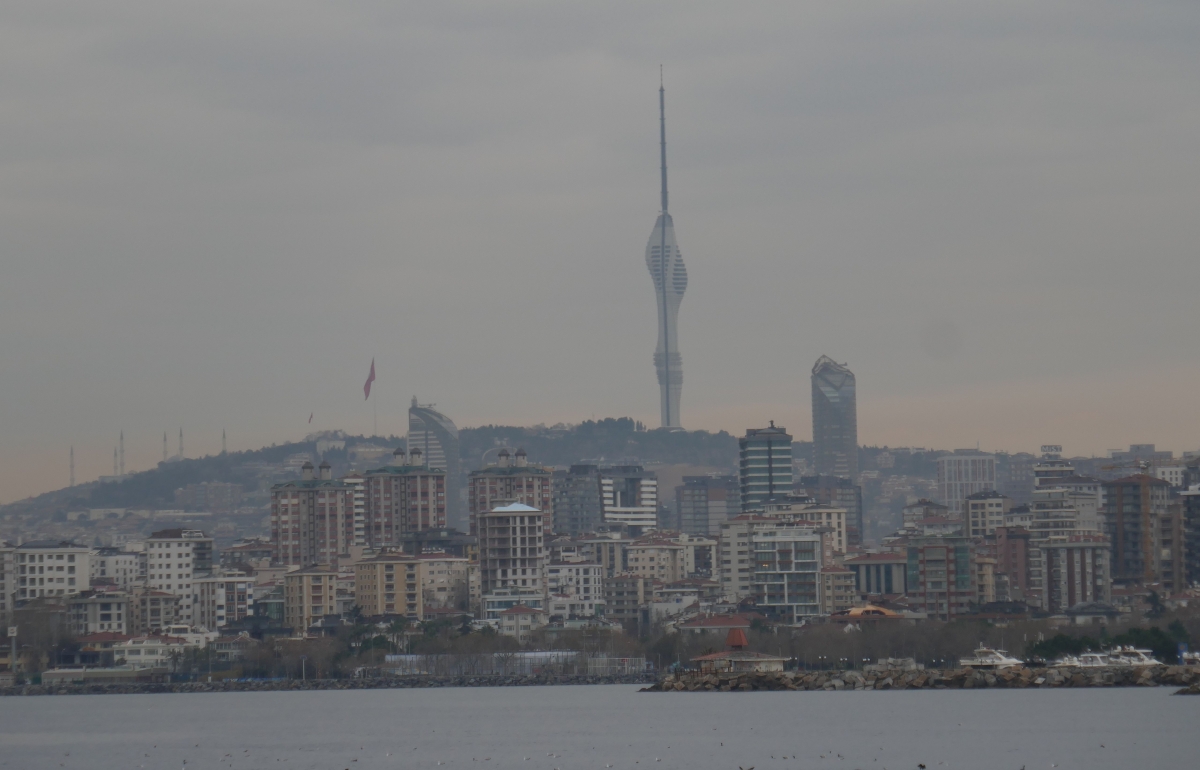Ein Erdbeben in Istanbul wäre eine Katastrophe

Hälfte aller Häuser nicht erbebensicher; Blick auf Üskudar in Istanbul, Bild: Thomas v. der Osten-Sacken
Nicht dass es irgendwann passiert steht in Frage, sondern wann und wie heftig. Experten rechnen fest mit einem heftigen Erdbeben in Istanbul in den kommenden Jahren und die Folgen wären verheerend:
For more than five weeks, Turkey has grappled with the aftermath of a devastating 7.8 magnitude earthquake in the country’s south-east. But further afield, in its biggest and most populous city, pressure is mounting on authorities to prepare for the possibility of another natural disaster of unthinkable proportions.
“The outlook for Istanbul is not bright. It’s not bright at all,” says Professor Celal Sengor, one of Turkey’s foremost geoscientists.
“If a major earthquake doesn’t happen in the next twenty years in Istanbul, then we would all be very surprised,” the Istanbul Technical University professor tells CNN. “That’s how close it is. It’s only a probability, but the probability is high.”
With two key fault lines in its vicinity – the North Anatolian and the East Anatolian – Turkey is one of the most seismically active regions in the world. It’s a geological reality that has amplified concern over Istanbul’s earthquake preparedness.
Once the capital of both the Byzantine empire and the Ottoman empire, the densely populated city is home to around 16 million people. It lies precariously close to the North Anatolian fault, which passes within 20 kilometers (12.4 miles) of Istanbul and through the Sea of Marmara, according to the Geological Society of London.
Historically, the fault has led to several disastrous earthquakes, including a 7.6 magnitude quake that struck the nearby city of Izmit in 1999, killing over 17,000 people, and displacing an estimated 500,000 others.
Today, experts estimate that another earthquake across the North Anatolian fault could reach a magnitude of anywhere between 7.2 and 7.8, with devastating consequences for Turkey’s commercial and industrial hub. The timing of such a quake, however, is impossible to predict.
“We can foretell that an earthquake of that magnitude will happen soon, but that is the best we can do. There is no way you can predict it,” Sengor says.
A study conducted by the Kandilli Observatory and Earthquake Research Institute estimates a death toll of more than 14,000 if a 7.5 magnitude earthquake in Istanbul were to occur at night. Some experts, however, believe the toll will be far greater.
“My estimate is about 100,000. It’s going to be havoc,” says Sengor. “You can’t just think about the direct impact of the shaking, you must also think about what will follow the shaking. There will be looting, fires, epidemics. It’s going to be terrible.”